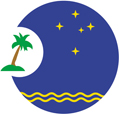The Forum Economic Action Plan 2012 was issued at the close of the 16th Forum Economic Ministers' Meeting (FEMM 16).
The Action Plan addresses sustainable economic development in the Pacific region, with sections on women's economic empowerment, development coordination in the region, the need to reduce reliance on fossil fuels, and climate change financing.
 5 July 2012: The 16th Forum Economic Ministers’ Meeting (FEMM 16) discussed issues relating to economic governance in the Pacific, and concluded with the release of the Forum Economic Action Plan 2012. The Plan addresses, inter alia: implementing the Waiheke Declaration; economic empowerment of women; implementation of the Cairns Compact on Strengthening Development Coordination in the Pacific; progress by the Group of 20 (G20); and climate change resourcing.
5 July 2012: The 16th Forum Economic Ministers’ Meeting (FEMM 16) discussed issues relating to economic governance in the Pacific, and concluded with the release of the Forum Economic Action Plan 2012. The Plan addresses, inter alia: implementing the Waiheke Declaration; economic empowerment of women; implementation of the Cairns Compact on Strengthening Development Coordination in the Pacific; progress by the Group of 20 (G20); and climate change resourcing.
The meeting was hosted by the Pacific Island Forum Secretariat (PIFS) along with development partners, on 3-4 July 2012, in Tarawa, Kiribati, and attended by 15 member countries.
On implementation of the 2011 Waiheke Declaration on sustainable economic development, Ministers: agreed to devote greater resources to improve coastal fisheries management given its critical importance to food security; emphasized the need for further innovative mechanisms for the development of tourism at the regional level, and specific initiatives at the national level; and acknowledged the need to work with development partners and the private sector to improve energy efficiency and significantly increase investment in alternative forms of energy, to reduce reliance on fossil fuels. Ministers agreed to provide regional oversight and leadership in the implementation of the Declaration, and requested the formation of a working group of relevant technical agencies to coordinate its implementation.
On economic empowerment of women, Ministers agreed on ways to improve the enabling environment for women’s economic participation, including in the formal labor market.
On the Compact, Ministers asked PIFS to seek views on improving the private sector dialogue. They also reiterated the Compact’s importance in encouraging effective coordination of available resources to make progress on the Millennium Development Goals (MDGs) and other national development priorities.
On the G20, Ministers urged Australia, which will host the Group in 2014, to bring a regional perspective and ensure consideration for global policies’ impacts on smaller countries, including in the Pacific.
On climate change resourcing, Ministers: highlighted Nauru’s experiences in applying an optimal mix of climate change financing modalities; welcomed the establishment of the Green Climate Fund (GCF) and encouraged tailored approaches to supporting Forum Island Countries’ access to GCF and other international climate change funds; and agreed that the design of a regional fund should take into account related outcomes of initiatives currently being implemented at the national, regional and international level on climate change financing. They noted that the Pacific Governors of the Asian Development Bank (ADB) have established a working committee on climate change, chaired by Vanuatu, and urged the committee to build on successful examples in Papua New Guinea, Samoa and Tonga.
Finally, the Ministers called for understanding implications of the outcomes of the UN Conference on Sustainable Development (UNCSD, or Rio+20), and of coordinating regional responses. They requested the Forum Secretariat to analyse the Rio+20 outcomes and their implications for the appropriate programmes for the region.
Members of the Pacific Islands Forum include Australia, Cook Islands, Federated States of Micronesia, Fiji, Kiribati, Nauru, New Zealand, Niue, Palau, Papua New Guinea, Republic of Marshall Islands, Samoa, Solomon Islands, Tonga, Tuvalu and Vanuatu. [PIFS Press Release] [Forum Economic Action Plan 2012]